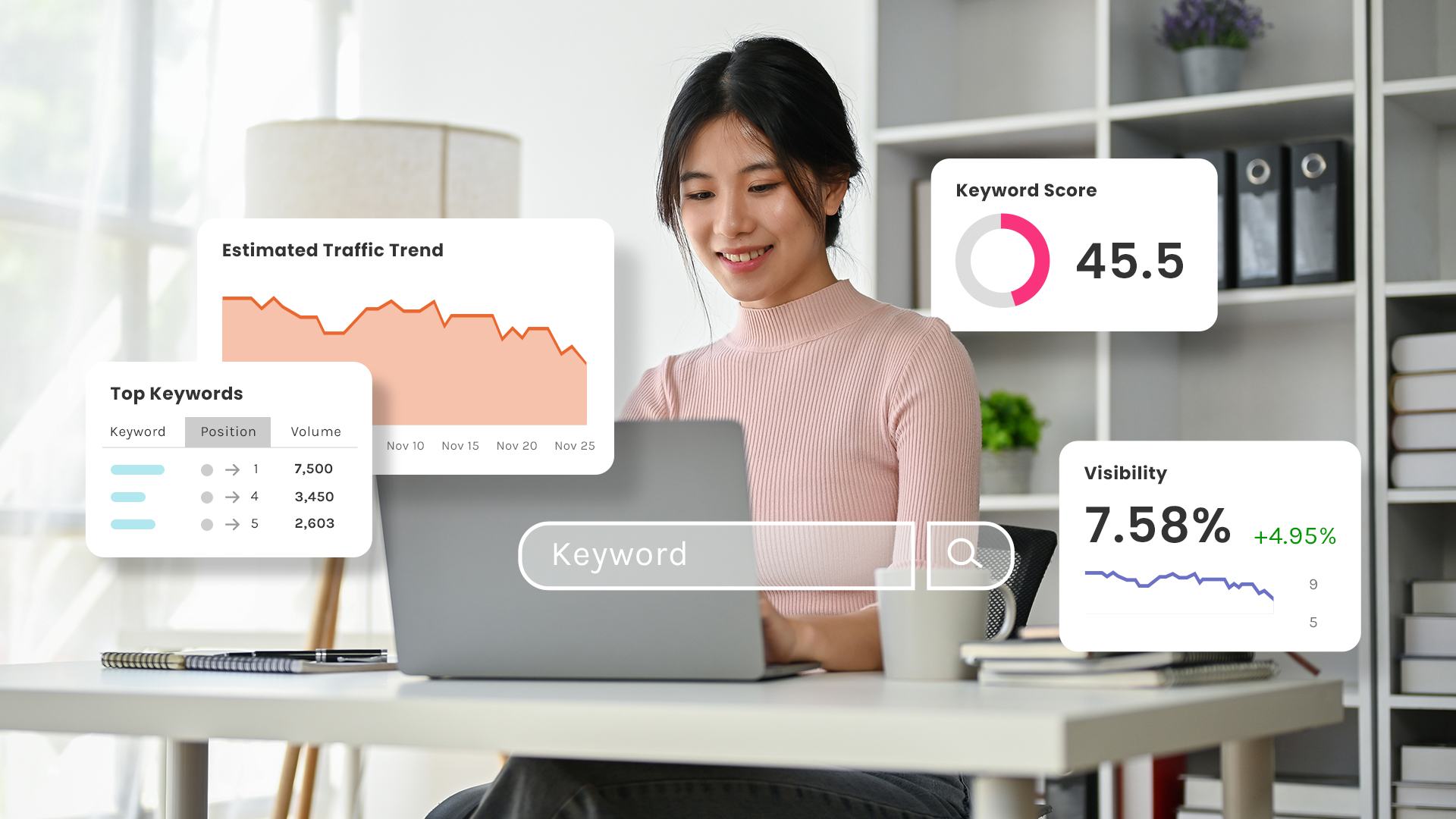In an era where digital competition is fiercer than ever, mastering SEO is key to securing a top spot on search engines. With Google’s frequent updates and refined algorithms, staying on top of current SEO best practices is essential. Here, we break down the latest techniques and strategies to help you optimize your site and boost your rankings in 2024.
1. Understanding the Foundations of SEO
At its core, Search Engine Optimization (SEO) is about making your website visible and valuable to both search engines and users. The SEO process includes optimizing your content, structure, and backlinks so that Google’s crawlers can easily understand, index, and rank your site.
Some fundamentals to keep in mind:
- Keyword Relevance: Keywords are the words or phrases people type into search engines. Incorporating relevant keywords helps search engines match your page to a user’s query.
- User Intent: Google’s algorithms prioritize content that matches the user’s intent, which means understanding what users are really searching for when they enter a query.
- Technical SEO: SEO isn’t just about keywords—it involves ensuring your site is well-structured, loads quickly, and has no technical errors that could harm your ranking.
In essence, SEO helps you attract the right visitors to your site. But to truly master SEO in 2024, you need to go beyond the basics.
2. How Google Search Works: The Role of Crawlers and Indexing
Google’s crawlers, also known as Googlebots, are constantly scanning the web, identifying pages, and adding them to Google’s vast index. Here’s how you can help them find and understand your site:
- Use Descriptive URLs: Including relevant keywords in URLs can improve search visibility. For instance, a URL like “/best-smartphones-2024” tells Google (and users) precisely what to expect.
- Submit a Sitemap: While not mandatory, submitting a sitemap can help Google find all the URLs you want indexed, especially for large websites.
- Optimize for Mobile-First Indexing: With Google’s mobile-first indexing, it’s crucial to ensure that your website is mobile-friendly. This means responsive design, easy navigation, and optimized images.
By helping Google’s crawlers understand your content, you increase your chances of ranking high on search engine results pages (SERPs).
3. Organizing Your Site Structure: The Importance of Logical Flow
A well-organized site makes it easier for both users and search engines to navigate. The following practices are essential in 2024:
- Group Related Content: Create clusters of related content under logical directories. For example, if you run a tech site, group articles on “smartphones” and “laptops” separately.
- Canonical Tags: Duplicate content can confuse search engines. By setting canonical tags, you can tell Google which version of a page to prioritize, preventing ranking issues.
- Breadcrumbs and Navigation: Breadcrumb navigation helps users understand their location on your site and enables Google to establish relationships between different pages.
An organized structure allows search engines to “crawl” your site more efficiently and also enhances the user experience, contributing to a higher ranking.
4. Content is Still King: Creating High-Quality, Useful Content
Google has shifted its focus to prioritize content that is helpful, well-organized, and tailored to the reader. Here’s how to produce content that meets Google’s high standards:
- Focus on E-E-A-T Principles: Expertise, Experience, Authority, and Trustworthiness (E-E-A-T) are pivotal to ranking well. Google favors content from reputable, knowledgeable sources.
- Write for Humans, Not Just Algorithms: The days of keyword stuffing are long gone. Write naturally, focusing on topics that interest and inform your audience.
- Update Your Content Regularly: Keeping your content up-to-date signals to Google that your site provides current information, which can help you maintain higher rankings.
- Target Long-Tail Keywords: Long-tail keywords are specific phrases that capture user intent more accurately. They often have less competition and can drive more qualified traffic to your site.
For content to be engaging, prioritize readability. Use headings, lists, and short paragraphs to break up text, making it easy for readers and search engines to digest your content.
5. Optimizing On-Page SEO Elements
On-page SEO is about optimizing individual pages to help them rank. Key elements to focus on in 2024 include:
- Title Tags and Meta Descriptions: The title and meta description are the first things users see on a SERP. Craft concise, keyword-rich titles and descriptions to boost click-through rates.
- Header Tags (H1, H2, H3): Proper use of headers helps search engines understand the hierarchy and structure of your content. Use H1 for the main title, H2 for sections, and H3 for sub-sections.
- Internal Linking: Link to other pages on your site to help Google understand the context and relationships between your pages. This also keeps users on your site longer.
- Image Optimization: Optimize image sizes to improve load times and add alt text with relevant keywords to improve accessibility and SEO.
Optimized on-page elements provide clarity to both users and search engines, making it easier for your pages to rank.
6. Off-Page SEO and Backlinks: Building Authority
Off-page SEO focuses on building your site’s authority by earning backlinks from other reputable sites. Here’s what works in 2024:
- Quality Over Quantity: A few high-quality backlinks from authoritative sources (like news sites or reputable blogs) carry more weight than numerous low-quality links.
- Guest Blogging and Partnerships: Collaborating with other industry sites through guest posts or partnerships can help you earn valuable backlinks and increase your reach.
- Leverage social media: Social shares don’t directly impact SEO, but they can drive traffic to your site, increasing its relevance and potentially attracting natural backlinks.
- Monitor Your Backlink Profile: Tools like Google Search Console and SEMrush can help you track your backlinks and ensure they’re from reputable sites. Disavow any spammy or low-quality links that could harm your ranking.
Building authority requires consistent effort, but these techniques can significantly impact your SEO performance.
7. Improving Page Load Speed and Core Web Vitals
Google’s Core Web Vitals—focusing on load time, interactivity, and visual stability—are now critical ranking factors. To enhance these metrics:
- Optimize Images and Files: Compress images and enable lazy loading to reduce page size and improve load speed.
- Minimize JavaScript and CSS: Unoptimized code can slow down your site. Use tools like Google’s Page Speed Insights to identify and fix issues.
- Choose a Fast-Hosting Provider: A reliable hosting provider with robust servers can significantly reduce page load time.
- Prioritize Mobile Performance: Mobile speed is especially important, as Google’s mobile-first indexing prioritizes the mobile version of your site.
Faster load times and better user experience (UX) directly impact SEO performance, as they reduce bounce rates and increase dwell time.
8. Monitoring and Analyzing SEO Performance
To ensure your SEO efforts are effective, use analytics tools to track your site’s performance:
- Google Search Console: Monitor organic search traffic, check for crawling errors, and gain insights into keyword performance.
- Google Analytics: Track user behavior to understand how visitors interact with your content, which pages have high bounce rates, and where traffic is coming from.
- SEO Tools like Ahrefs or SEMrush: These tools offer detailed analysis of keyword rankings, backlinks, and competitor data to help you refine your strategy.
Regularly review these metrics to identify areas for improvement and adapt to changes in Google’s algorithms.
9. Avoiding Outdated Practices
Some SEO techniques that once worked no longer offer value or may even hurt your rankings. In 2024, avoid these practices:
- Keyword Stuffing: Overusing keywords appears unnatural and can result in penalties.
- Low-Quality Backlinks: Links from spammy sites can harm your site’s authority.
- Using Meta Keywords Tags: Google doesn’t use meta keywords for ranking purposes, so focuses instead on relevant titles and content.
- Clickbait Headlines: Engaging headlines are essential, but misleading users can increase bounce rates, negatively affecting SEO.
By avoiding outdated techniques, you’ll protect your site from penalties and stay aligned with modern best practices.
Conclusion: Embracing a Long-Term SEO Strategy
SEO is a long game. Changes may take months to show results, but the payoff is well worth it. With a focus on high-quality content, technical optimization, and user experience, you can improve your site’s search rankings and attract the right audience.
Remember, SEO is constantly evolving. Staying informed on best practices and refining your strategy accordingly is key to SEO success in 2024. By implementing these techniques, you can position your site to dominate the search engine rankings and achieve long-term growth.
Ready to elevate your digital strategy? Partner with ClinkIT Solutions and harness the latest in SEO, IT solutions, and digital innovation to drive measurable growth.



